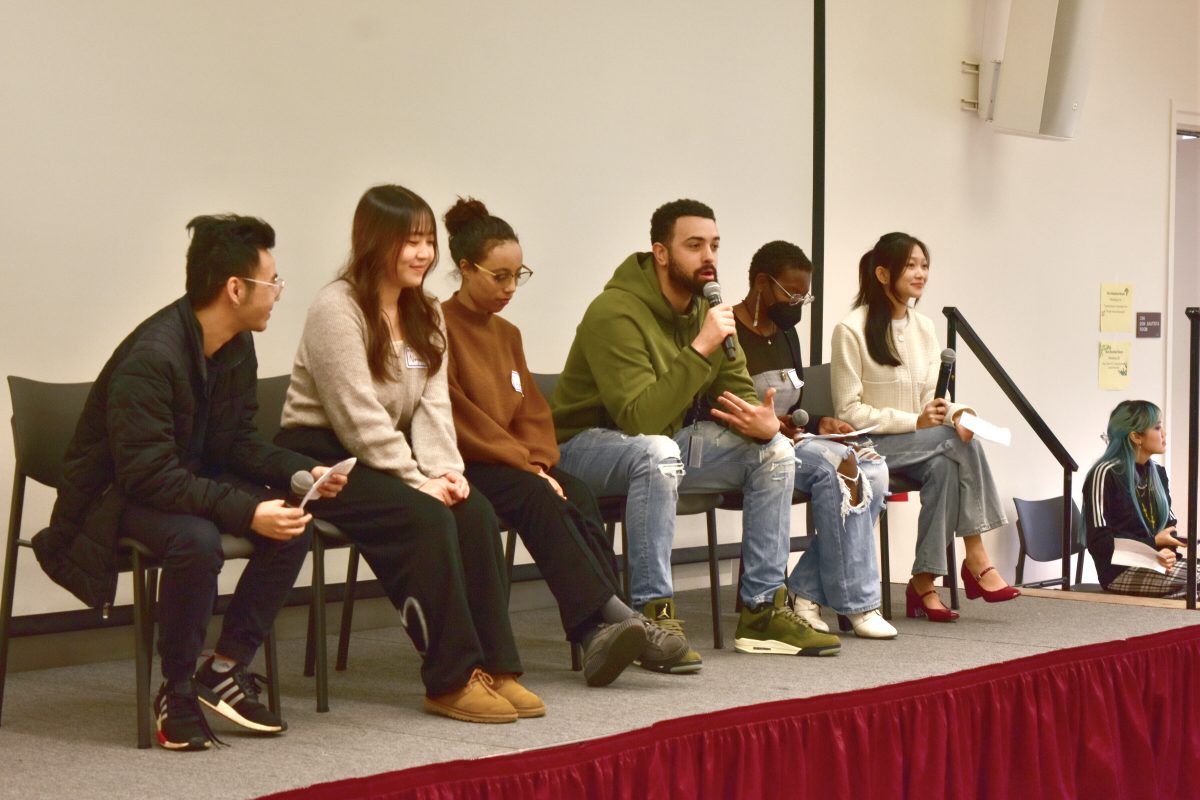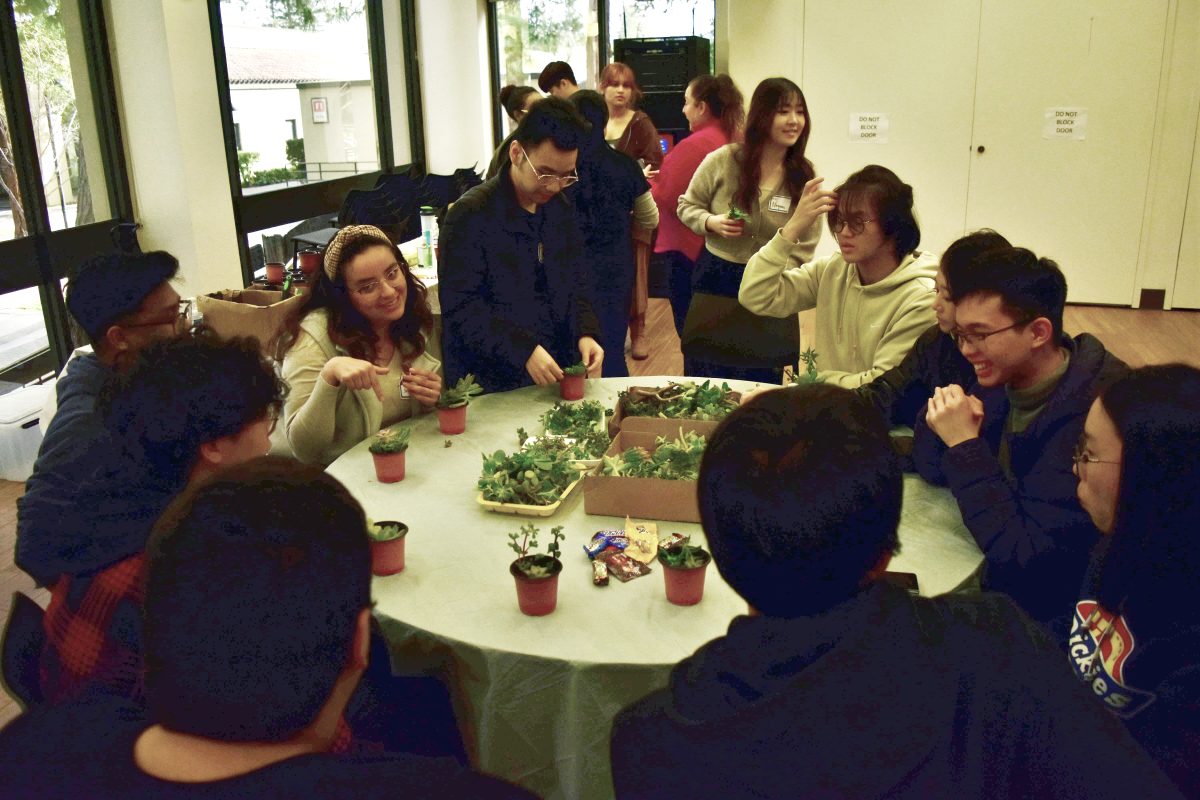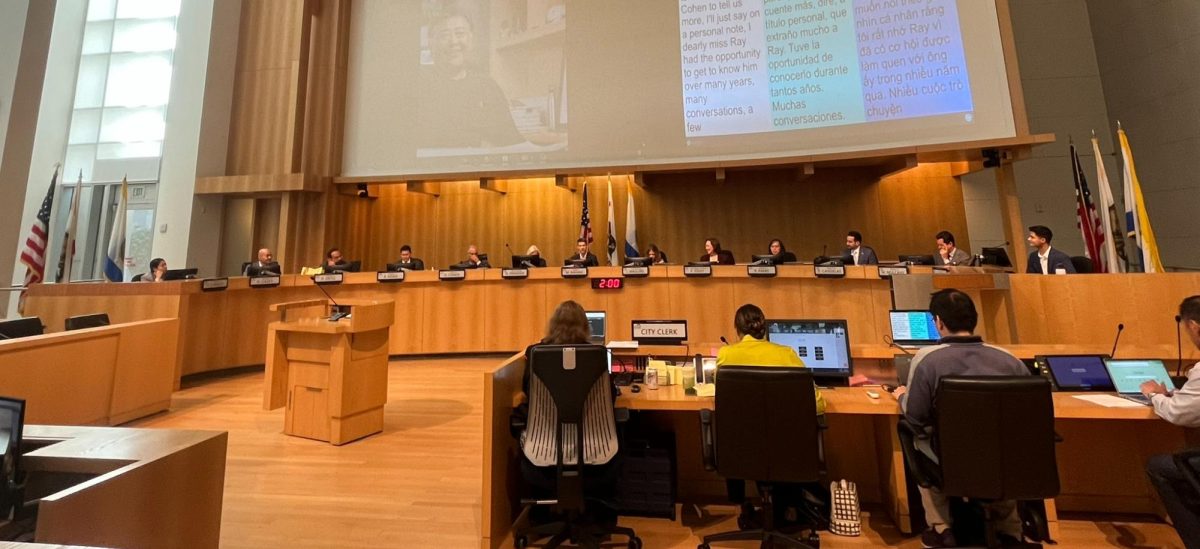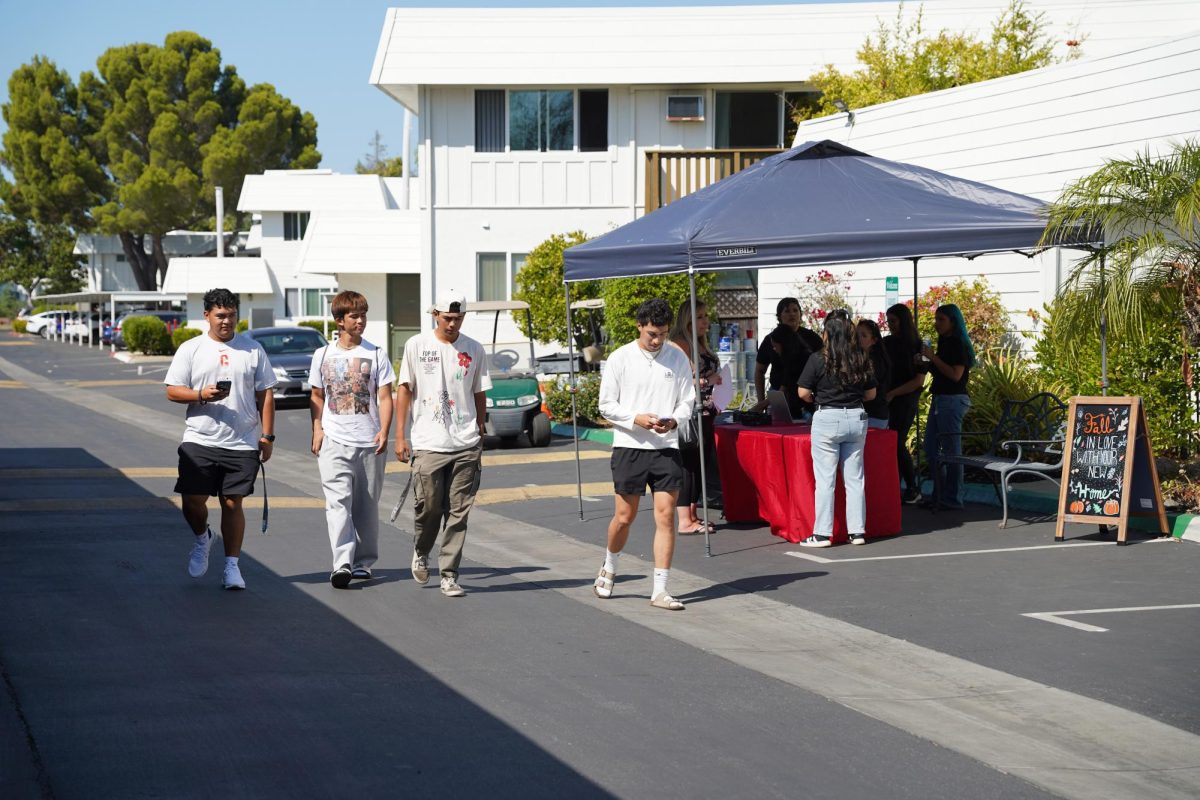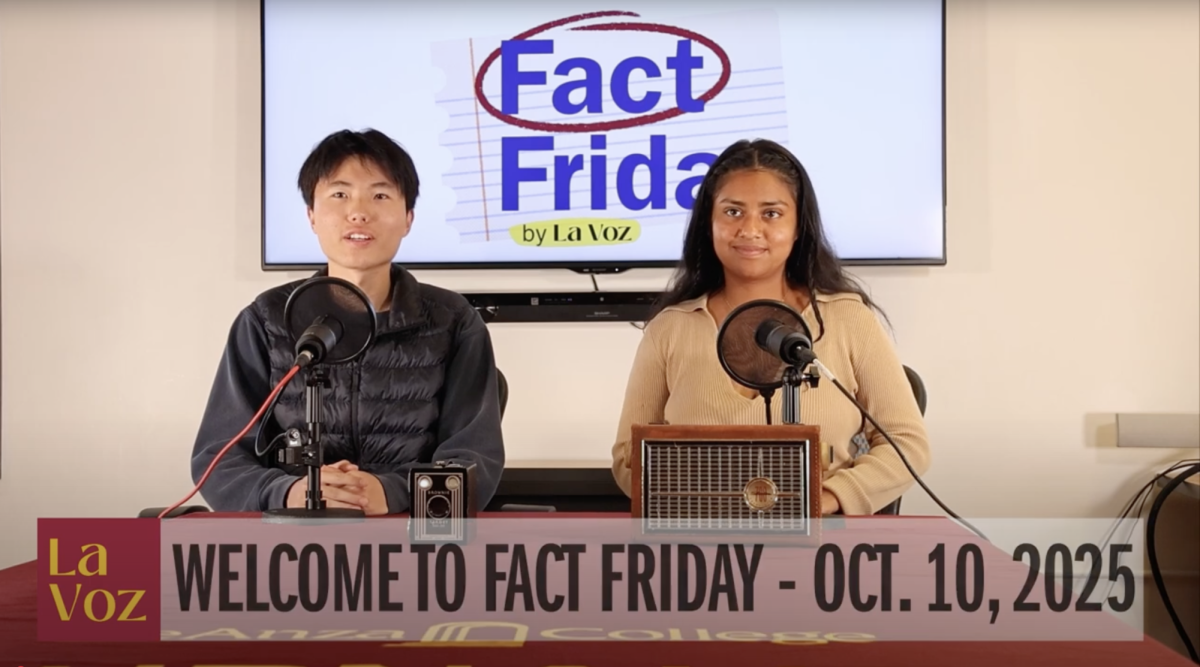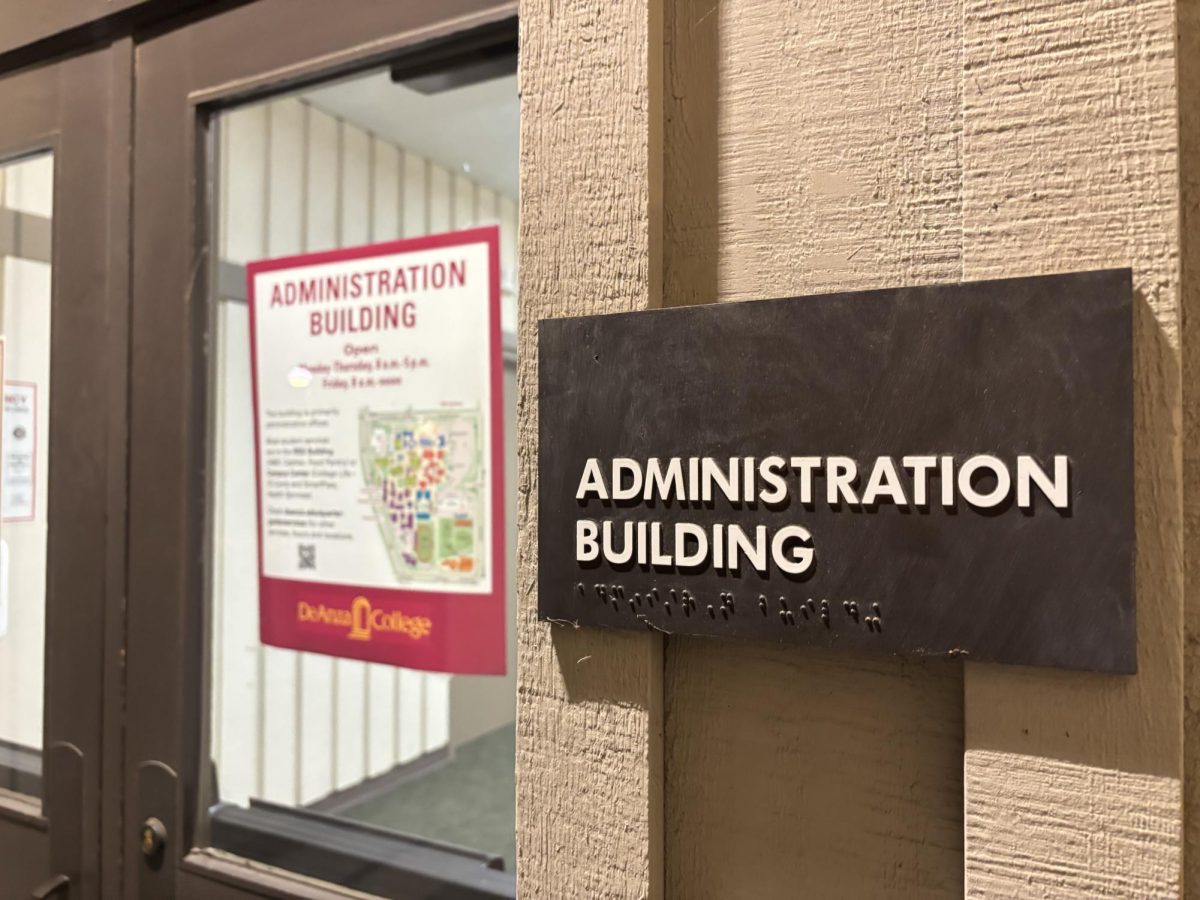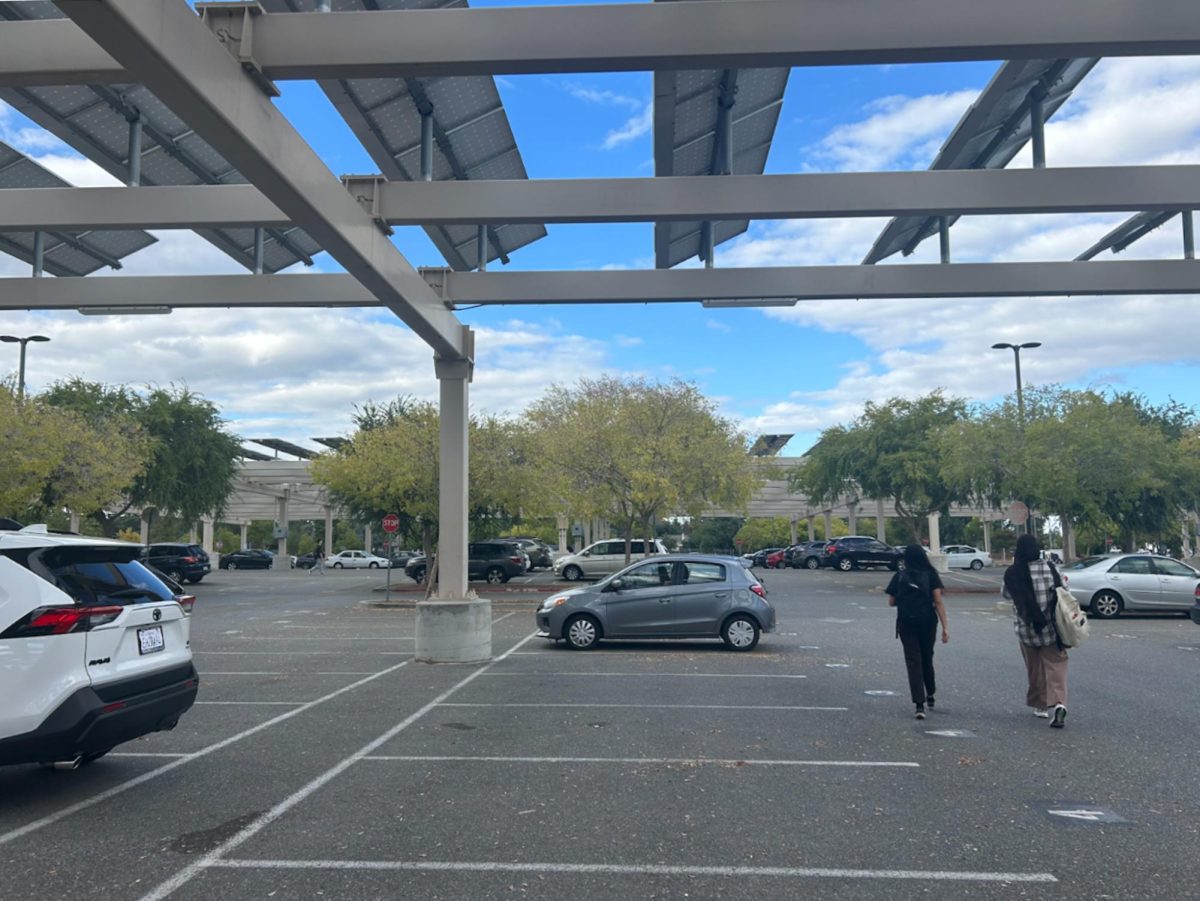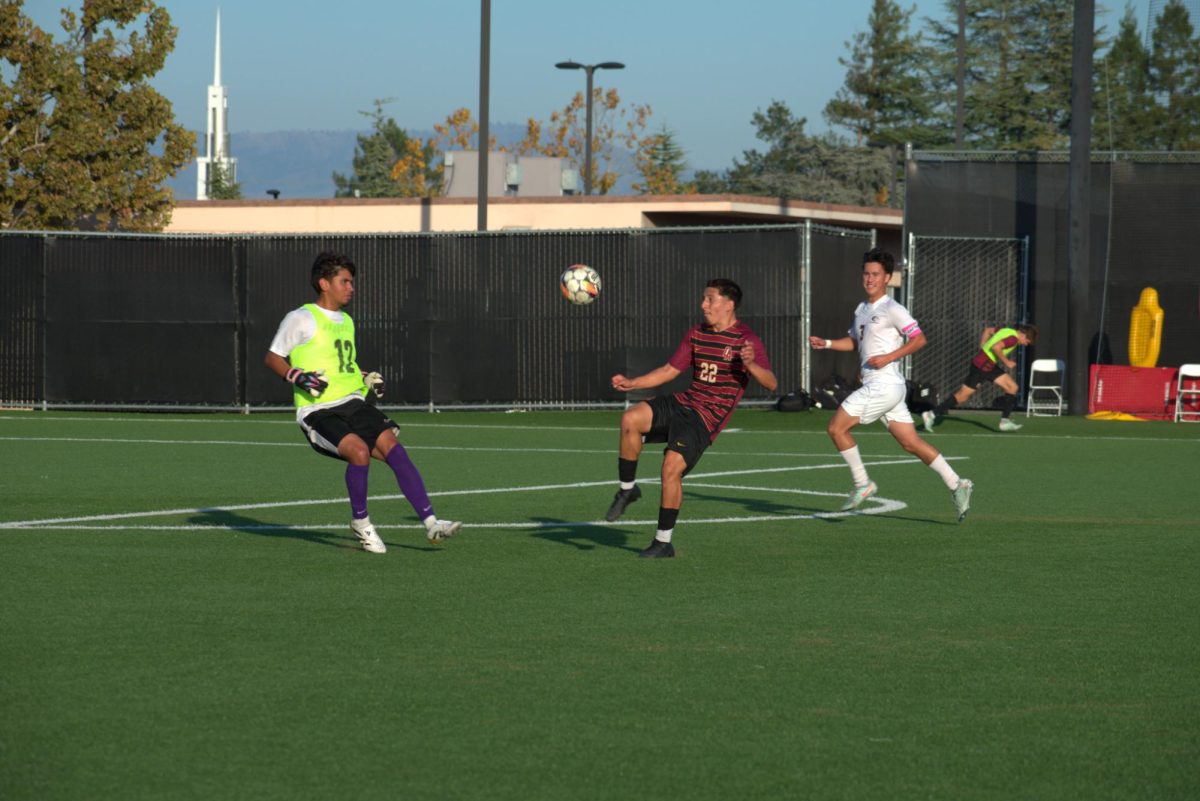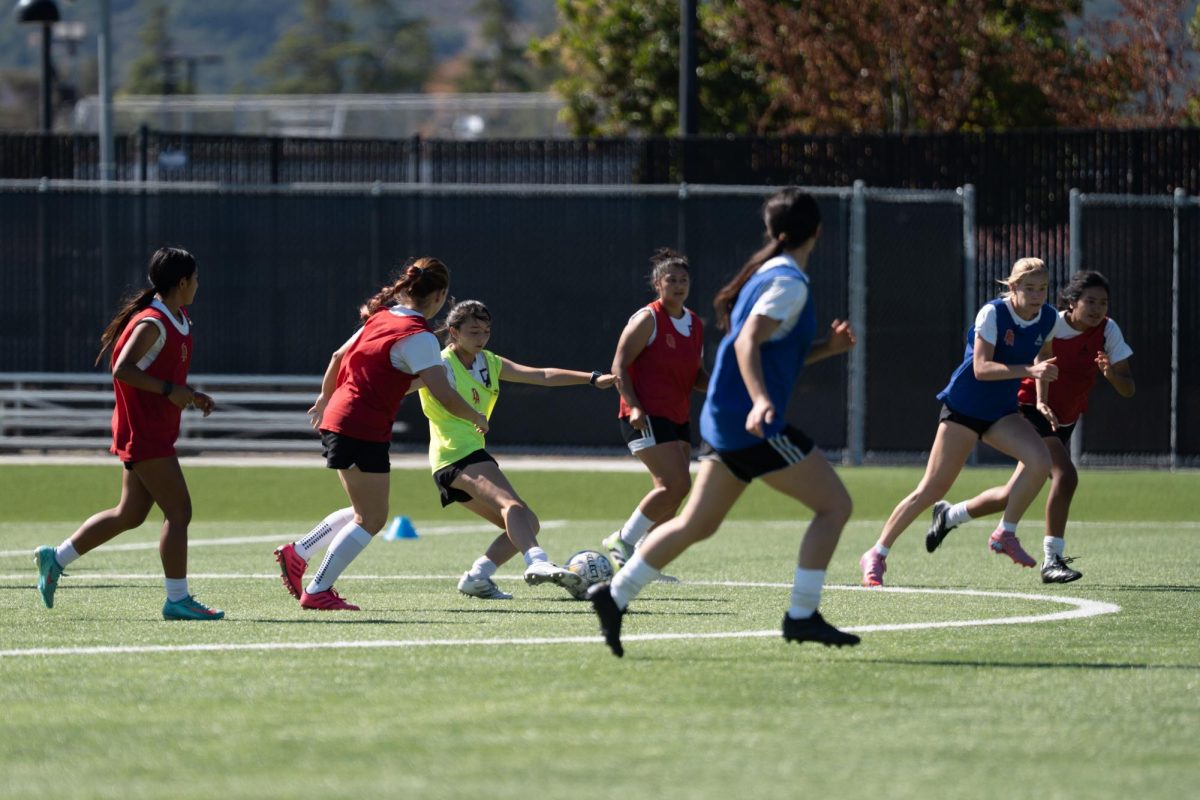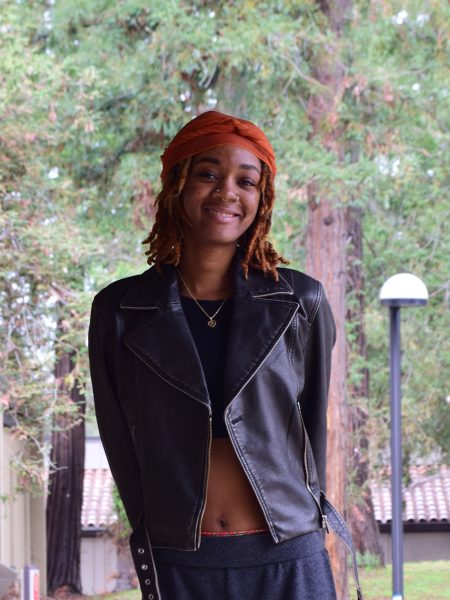With music blasting, food scents lingering and noise conversing from inside the room, many students waited outside to get their name tags, assigned tables and guaranteed new friendships.
De Anza organizations such as De Anza Student Government and the Pride Center kick-started the Annual Peer Equity Conference on Feb. 23 in conference room A & B with hundreds of students who work in student services in attendance.
Directed by Katrina Bui, 21, engineering major, who works in the Office of Outreach, alongside Ashley Villeda, 21, communications major, who works at the Office of Equity, hosted the biggest conference turnout yet, according to Diana Alves de Lima, co-director of the Student Success Center.
Bryan Hernandez Cruz, 18, mechanical engineering major and student intern at the Office of Equity, began this conference with a motivational presentation about land acknowledgment and self-recognition.
Students then received a heart-warming opening via Zoom from Equity and Engagement Division Dean Michelle Hernandez about self-success, inner strength and the power of community.
Hernandez shared an African proverb to the audience to influence collaboration energy that day, “If you want to go fast, go alone. If you want to go far — go together.”
After, Andrea Aviles, sociology major, an intern at Higher Education for AB 540 Students and part of the Latinx Empowerment at De Anza, followed by Joshua Madrid, psychology major and outreach student ambassador, shared about what it means to be equitable.
“Having (color blindness) is not helpful because you need to see the injustice that people have; that way, you can find out how to use your privilege or your power to help others,” Aviles said.
Charles Van Meurs, counselor of the Men Of Color community; Nayeon Kim, math, science and technology research center tutor and mentor; Justus Williams, Equity office intern; Feven Asmelash, MSTRC tutor and Umoja student; Psomí Robinson, Pride center; with moderators Elena Aye Chan Thet Paing, outreach and William Pham, outreach, concluded the first half of the conference with the campus community.
This panel offered insight into the importance of being knowledgeable about the resources offered on campus, the success in interpersonal connections and time management.
Meurs said in-person classes make a difference because of its interactiveness.
“You’re able to pick up and receive how the professor feels when they’re giving information, facial expressions and body language which makes a huge difference in how you learn that subject,” Meurs said. “People meet their closest friends for life in these classrooms. These connections you make through communities are ones you will carry with you in your professional and personal life.”
This action-packed conference consisted of two workshops of around 50 minutes each, with three sub-workshops coinciding.
Workshop #1: Rooting Resilience with Resources & Support
“Exploring Equity: A Scavenger Hunt Through Campus Resources”
“Empowering Resources: Paving the Path for First-Gen Students”
“Financial Literacy & Wellness in Equity”
Melissa Aguilar, co-director of the student success center, said, “We want to empower students to think beyond just themselves in their studies, but how they can help others be successful — with good care and cariño (love).”
Workshop #2: Cultivating Empathy through Creative Caring
“Making Connections with Participatory Art”
“Gay English 101: Unpacking Biases around Pronouns”
“Cultivating Self-Care & Connections”
“I feel like these are among the students on campus who are leaders and can make a difference. By meeting each other, they’re even more powerful than working in isolation and only knowing a few people in their program,” Alves de Lima said.
Madrid said that the help he received in his college years made him realize the significance of having a community.
“I went to a different college and had a horrible experience overall with the counselors. I had all these questions unanswered — they put a lot of roadblocks in my path. When I came to De Anza, I felt the motivation behind the counselors, specifically Long Phan,” Madrid said. “They would ask, ‘What struggles are you having, not just academically, but for you personally, that I can help you with?’ That instilled a lot of passion in me, and since so many students have come and helped me out, I want to return the favor and help students achieve whatever they need.”



